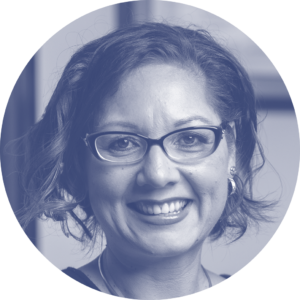Where do you call home?
San Diego, CA
What’s your specialty or area of expertise?
OB/GYN, family planning, and general gynecology
What first inspired you to become a doctor?
In retrospect, I don’t have a singular instant or specific experience that I can say solidified my decision to become a physician. From the moment I realized it might even possible to be a doctor, I somehow knew I wanted to help women and girls. Growing up in my multi-cultural home, in a working class family and in a military town, we didn’t talk a lot about reproductive health or women’s rights. And yet, education, service to others, tenacity, and leadership were qualities my parents instilled in me and my older siblings. Obstetrics and Gynecology was a natural choice for me in medical school. And, as my career has progressed, I found a way to utilize the skillset built in to my core as a young girl. I love that I can continue to deliver medical care to my patients and fight for their reproductive rights simultaneously.
What advice do you have for medical students and residents wanting to incorporate advocacy into their day-to-day?
There are so many ways you can be an advocate. I am a firm believer that advocacy begins with education. Medical students and residents should identify what they are passionate about and find ways they can make a difference in that issue. Making a difference can be educating patients in the exam room, peers in a lecture hall, or the public at large with op-eds/media interviews. If your cause is political, you can learn about the legislative system and how to effect political change (consider joining your state/national medical society). Be open to leadership and advocacy training throughout your career. As you grow as a physician, you may be surprised at what new opportunities can present themselves to you.
What current policy issue especially motivates you to be an advocate?
The Hyde amendment needs to be reversed. Restricting federal dollars for abortion is discriminatory and disproportionately affects underserved people. As a former service member as well as an OBGYN within the military system, I know firsthand how this law hurts women and promotes stigma around abortion.
How have the events of the past few years shaped how you view being a physician advocate?
The challenging political environment leading up to the 2016 election resulted in blatant and unyielding attacks on reproductive rights. In 2017 I was still working for the military and could already feel the effects of the far right political agenda and attacks on reproductive rights in my own military hospital. After a decade of working diligently “from the inside” to fight for improved access for military women and their dependents for routine medical care, like contraception, I was starting to feel “silenced” by my own institution. I left my position with the military to become the CMO at a large Planned Parenthood Affiliate so that I could continue to not only provide medical care, but step up to advocacy. In my current role, I have the opportunity to use my voice without fear of retribution from my own hospital/agency and fight for access to all of reproductive healthcare, including abortion. The last few years forced me to realize that providing direct healthcare was not enough. I needed to use my own experience caring for women who faced so many barriers to sexual and reproductive health to effect meaningful change.
What is bringing you joy these days?
Working at Planned Parenthood and being surrounded by colleagues driven by a mission to improve access to lifesaving healthcare for all people brings me so much joy. I love the feeling of being in a culture of “YES!” and the positive energy around our work.